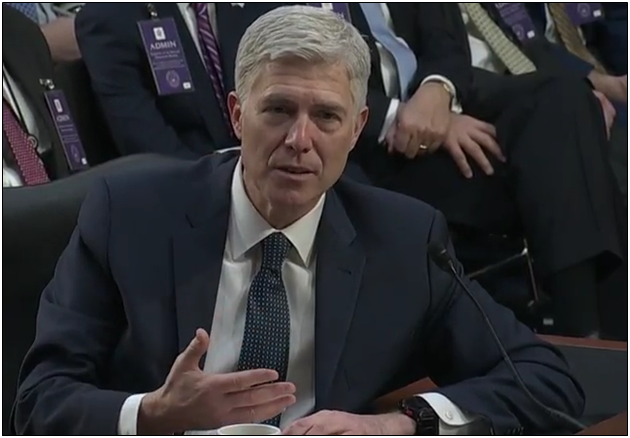By Natalia Castro
Democrats’ biggest loss in 2016 wasn’t the presidency, but the ability to put forward a Supreme Court nominee. As Republicans rejoice over the originalist judicial philosophy of President Donald Trump’s pick Neil Gorsuch, Democrats have already made it clear they will be employing every avenue to block the nomination; but they may be forgetting one important detail — Trump will likely have a second supreme court pick.
Minority Leader in the Senate Chuck Schumer (D-N.Y.) has already announced plans to filibuster the nominee, despite Gorsuch’s clear constitutional expertise and legal background. In fact, Schumer has made it clear since day one, he would oppose any conservative justice. In a speech on the Senate floor he claimed Gorsuch “will have to earn 60 votes for confirmation,” setting up a clear desire to filibuster.
However, some Democrats are now encouraging Schumer to think long term at another option, striking a deal with the Republicans.
It is becoming clear a second and possible third Supreme Court nominee could be up for nomination under the Trump presidency, making Gorsuch only one of several justices Trump could put on the bench.
If Democrats are too hard-headed on Gorsuch, they worry they could ruin the opportunity to compromise on any other justices.
Which is exactly the reason Politico writer Burgess Everett explains, “The deal Democrats would be most likely to pursue would be to allow confirmation of Gorsuch in exchange for a commitment from Republicans not to kill the filibuster for a subsequent vacancy during President Donald Trump’s term. The next high court opening could alter the balance of the court, and some Democrats privately argue that fight will be far more consequential than the current one.”
This “filibuster kill” Democrats are trying to prevent Republicans from employing is referred to as the nuclear option for the Senate, and was first employed by Democrats themselves.
In 2013 Senate Democrats led by Harry Reid removed the filibuster from lower court nominees and executive office appointments so they could advance with a simple majority rather than the 60-vote supermajority. While this may have seemed like a political ploy at the time to bring justices into lower courts that would assist in Obamacare implementation, the precedent was strong.
This stands true for every court besides the Supreme Court; if Republicans changed this to include the Supreme Court, an easy task with their simple majority, they could prevent Democrats from ever winning a Supreme Court debate in the current Senate.
However, this image of a deal has one obvious, major flaw — Republicans have absolutely no incentive to become a part of it.
Republicans can easily utilize the nuclear option and since Democrats created it, there is little room for judgment. Either way, Republicans wonn’t need to struggle to get the eight extra votes needed to beat a filibuster for Gorsuch — or any other conservative jurists in the future.
The Wall Street Journal’s Kimberly Strassel explains, “The American Bar Association unanimously awarded Judge Gorsuch its highest possible rating. He floated through this week’s confirmation hearings. Liberal and conservative colleagues alike have praised him to the stars… Not even Mr. Schumer denies Judge Gorsuch possesses a singularly gifted legal mind and is eminently qualified for the court. His objection, instead, is that the nominee is ‘conservative.’”
While Democrats weigh their options, it is clear Republicans still have the upper hand by picking the optimal Supreme Court nominee. If Schumer wants to filibuster, the Republican Senate should have no problem going nuclear to ensure that Gorsuch sits on the Supreme Court.
Natalia Castro is a contributing editor at Americans for Limited Government.







